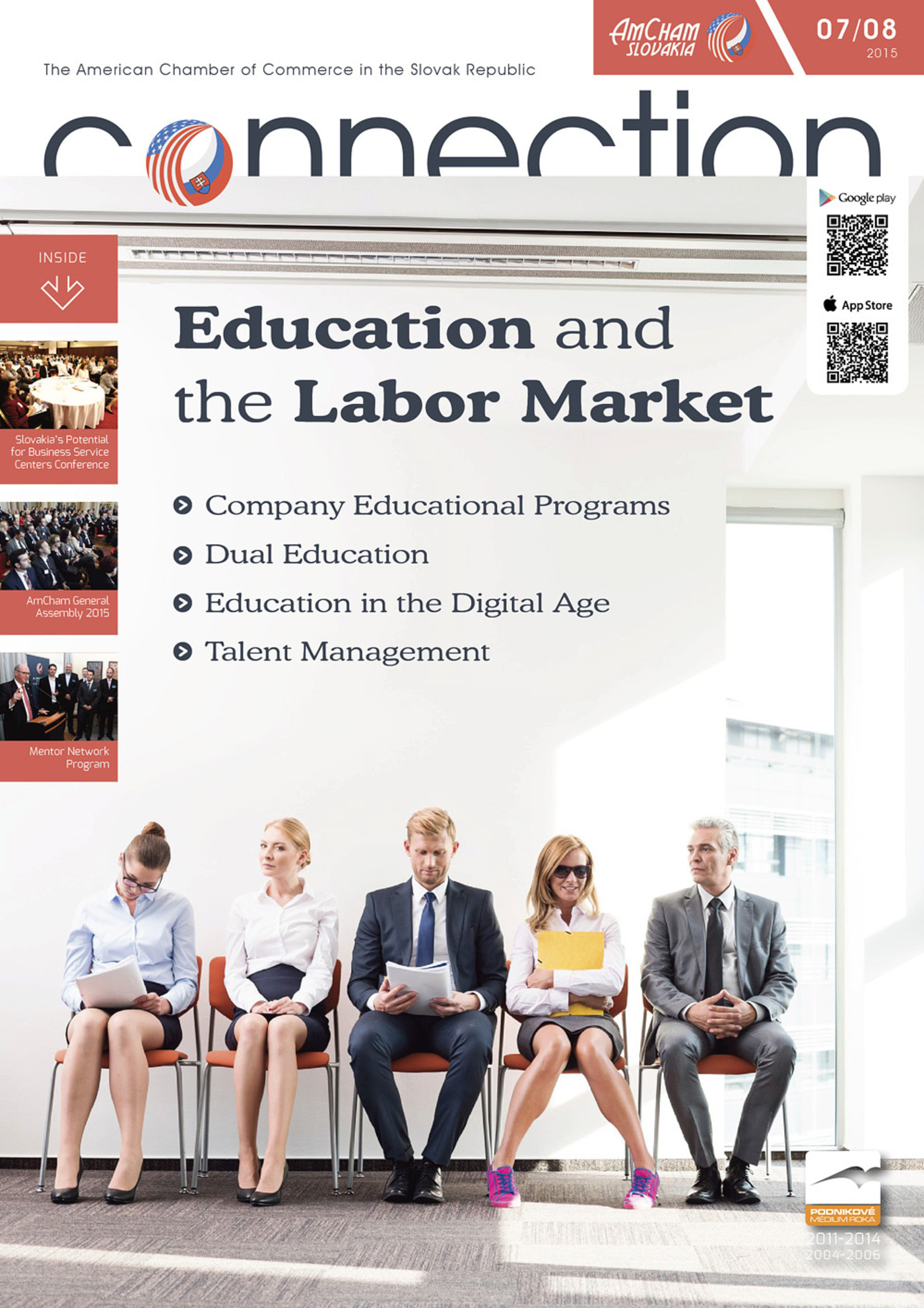There is no doubt that an effective educational program based on the company strategy can ensure that employees will be ready for the challenging future. They will keep their knowledge, skills and competencies up to date. Learning and development specialists are striving to create the best blend of learning in order to retain key talent, decrease staff turnover and help to achieve the company goals. Options include internal e-learning, one-off focused training, more complex in-house training, and use of external providers. Sooner or later, companies that are only meeting their educational needs on an ad hoc basis will find that this approach does not lead to positive results. Employees today have little hesitation in searching for a new job when they are dissatisfied with their current employer.
The specific requirements of young people from Generation Y further emphasizes the need for quality company education programs. One of the main trends is the blurring of borders between work and private life. Familiarity with new technology means employees demand flexible study options. The formal face-to-face training is substituted or supplemented by e-learnings, on the job trainings, webinars or professional body qualifications and memberships. Ad-hoc training interventions will not meet this demand so systematic company educational programs are required.
Professional body qualifications are becoming very effective alternatives to traditional training. Various globally recognized professional bodies such as ACCA, CIMA, CIPD, PMI, ISACA, CIM or CIOT are acting as real knowledge hubs in their fields and have usually been on the market for almost a century. All of them have developed internationally recognized professional qualifications. These are characterized by a unified syllabus created in cooperation with leading employers in order to reflect market needs. They support the application of acquired knowledge in real work during the course of study. Continuous education and actual work experience are also integral parts of the memberships in all professional organizations.
Why study professional qualifications?
Employers who support professional qualifications appreciate that this type of education helps them reach new talent pools in the labor market, such as motivated school leavers and those desiring development opportunities. Using professional qualifications is a cost efficient option that helps achieve better and earlier returns on training investments. Retention of key staff is another significant benefit of studying professional qualifications.
Students appreciate formal recognition and internationally recognized certificates, diplomas or memberships, which they obtain after graduation. Professional qualifications provide them with wider competencies and increase their competitiveness in the labor market. Finally, as there are many thousands of people studying for each qualification, possibilities to network and share knowledge and experience are almost unlimited. Interactive forums, magazines and supporting online learning platforms are just some of the additional advantages of being a part of a global professional body.
Professional qualifications in shared service centers
The crucial part of launching a professional qualification in a large organization is the correct allocation of students to the respective levels. This should be based on their formal education, years of experience or level of English. It is especially important in companies with a large number of employees and requires intensive communication between the HR department, line managers and an expert tutor or experienced learning provider. Another important element is pre-course work because it gives students a glimpse of what the training will be about and introduces some basic vocabulary. Face to face interactive block courses are still one of the most effective training tools. They should be followed by a mock exam shortly after so students can test their knowledge and identify areas for improvement. Most professional organizations are moving away from traditional written exams in favor of computer based exams. Electronic tests can be taken any time; results are usually known immediately. This gives students and employers greater freedom in planning educational activities around their work.
One example of a suitable educational program for employees of large financial shared service centers in Slovakia is the FIA (Foundation in Accountancy) set of qualifications developed by ACCA (Association of Chartered Certified Accountants). This suite of qualifications provides employers with competent and ethical accounting technicians, trained to consistent standards, with built-in flexibility to allow skills to be tailored to meet different business needs and environments.
Johnson Controls International s. r. o. (JCI) was one of the first employers in Slovakia to offer FIA to its employees on a large scale. Mr. Marián Užík, the Finance Director of Corporate Global Business Services in JCI says: “We started with the FIA education program two years ago. More than 200 people successfully completed one of the three levels. This program is very popular in our organization and people are very much interested to join it. Even though we have high expectations our pass rate is almost 100%. The diploma is one of our criteria for career growth within our company. It’s not a condition yet, but in midterm we plan to make it so. High potential employees with higher seniority and responsibility can also join ACCA or CIMA programs.”
It is not only in the Slovak market that professional qualifications feature in companies’ organizational training curriculum. With employee global mobility on the rise, educational programs are becoming international and acquired knowledge should be transferrable.
Eva Hupková, Director, PwC



Follow us